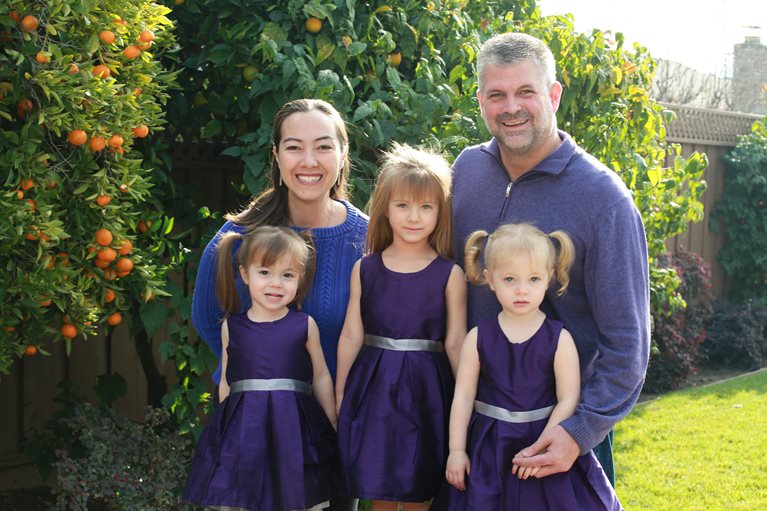
While I was growing up in Seattle, my mother owned and operated eight Malaysian restaurants, including one in the city’s iconic Pike Place Market. That’s where I started my professional career. I was six. I sold balloons on a stick for 25 cents. Before long, I was waitressing in my mom’s restaurants.
I learned a lot from that early work experience: entrepreneurship, resourcefulness, and the importance of building rapport. It helped me start to develop the skills and confidence I have needed on my path at McKinsey.
“Open your golden mouth.”
Guiding me along the way has been one of my mother’s credos. “Open your golden mouth,” she would say – meaning ask for directions, ask for help, speak up. Finding one’s voice is especially important for women and colleagues from underrepresented groups. I purposefully work with a lot of women on my teams, so I can help them find theirs. I know how intimidating it can be to assert yourself, especially around more senior colleagues and clients. When I first started at the firm, I received feedback to speak up more and not give so much deference to senior colleagues. I was told: “You can”t be a wallflower at this firm.’ Now I coach my mentees: if you are feeling self-conscious because of your age, gender or anything else – try to use it to your advantage. Anything you say will be more memorable precisely because you stand out, so make it count.
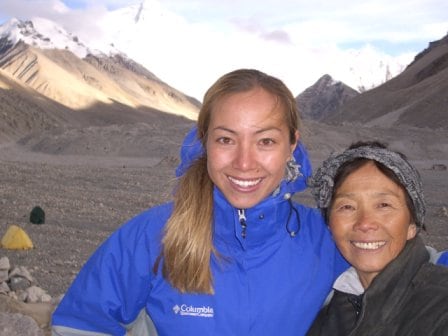
Something that helps me is deciding in advance what I want to say during a meeting – and where specifically in the conversation I’m going to jump in. I even rehearse sometimes. Even ten minutes of prep and reflection can make a big difference.
Step out of your comfort zone
My father also influenced my character. He was an Irish-American doctor from northern Minnesota who became the CEO of a health maintenance organization when I was a child.
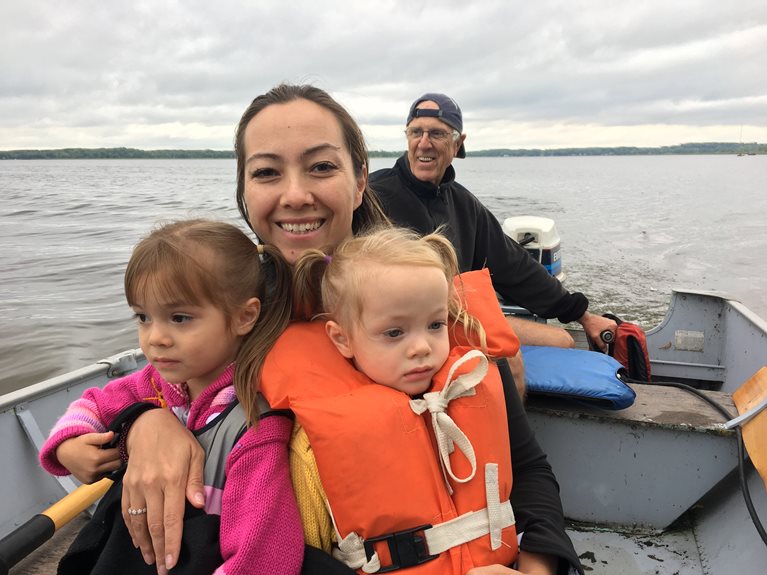
When I was 10, he suffered a serious illness. He fully recovered, but his priorities shifted dramatically. He quit his job and took my younger brother and I on a 15-month trip around the world with lengthy stops in Scotland, Africa, and Asia.
A few years later, we went to school in France, then our family moved to China. After two-and-a-half years there, I studied for a year in Ecuador, learning Spanish, then finished high school at an all-girls school in Japan. Living in other cultures taught me how to jump into new situations and learn as I went. I saw how culture shapes people and why people have different perspectives.
Paying it forward
I want my daughters to grow up with global perspectives like I did. This summer, I arranged for the girls – five-year-old Kyla, three-year-old twins Hana and Alexa – to spend two months in Nanjing, China, where I lived for three years, 25 years ago. It took a bit of planning and a lot of help to make it happen. I enlisted my parents to stay there for the whole summer. My husband Dave and I spent as much time there as possible. I even brushed up on my Mandarin. My colleagues and clients were also incredibly supportive, helping to schedule big workshops beforehand or afterwards.
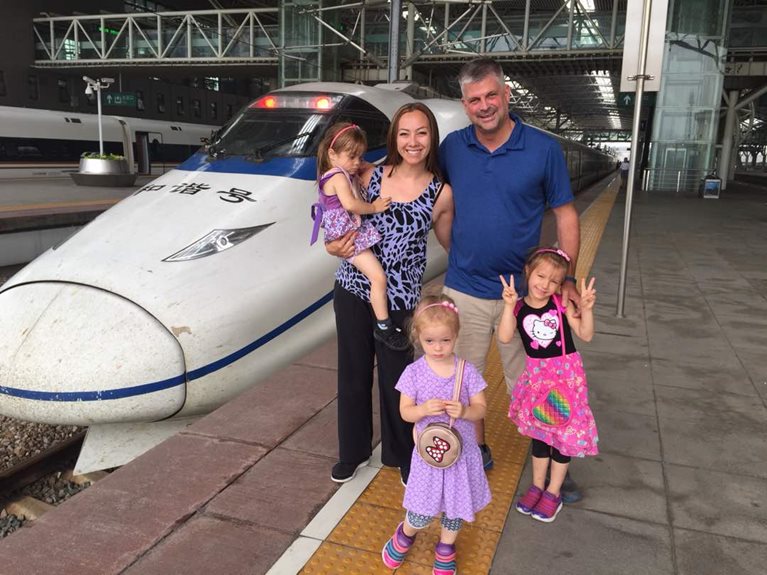
I try to bring this same appreciation for diverse perspectives to my project teams and clients, as well. This starts by thinking hard about staffing to get people with a complimentary mix of experiences and backgrounds on the team. It extends to our team problem solving sessions when I purposefully make space for more introverted and/or junior colleagues to share their perspectives.
I also spend about a quarter of my time leading McKinsey’s globally focused gender equality work. I instigated and led the Power of Parity that focused on creating the economic case for women’s equality in the workplace and highlighting the links to the societal gaps affecting women around the world. My client work in gender equality is with global philanthropies, multi-lateral organizations, and Fortune 500 companies to create a step-change in their diversity.
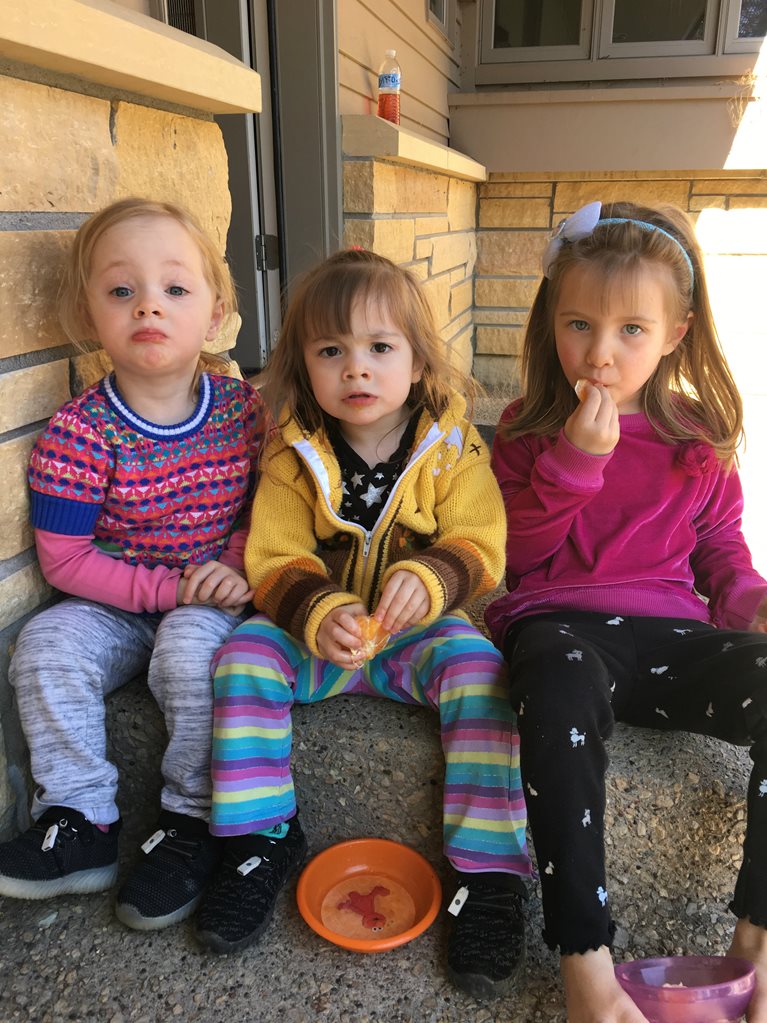
Juggling it all
This work gives me a sense of purpose. I’m constantly learning new things and tackling new challenges that excite me, which leads me to another piece of advice I share with my mentees. Many will ask me how I juggle it all – three kids; a husband who started a private equity firm; client work; gender equality research; recruiting for McKinsey; etc. I encourage them to:
1. Define sustainability
Figure out what this means for you. Know your definition will change over time. For me, it means getting home on Thursday nights in time to have dinner and put my three daughters to bed. When I shut my laptop down Friday afternoon, I don’t work again until my kids are asleep on Sunday night.
2. Track it
Monitor how frequently you achieve your definition of sustainable and adapt to make it happen more frequently. For example, you may need to stop doing some things. I try to be really disciplined about what I volunteer to do. My test is: “Would I be upset if I had to spend time on this on a Sunday night?”
3. Evaluate periodically, not daily
Twice a year, step back to see how well you’re doing. Do you like what you’re learning? Are the tradeoffs worth it? It takes too much energy to evaluate things on a day-to-day or week-to-week basis. As one of my sponsors would say, you must “dampen the amplitude,” so you don’t go from “Oh, I love this job!” to “Oh my goodness, I am so bad at this!” Instead, I periodically step back to evaluate how well my life is working, so I can make decisions with more perspective.